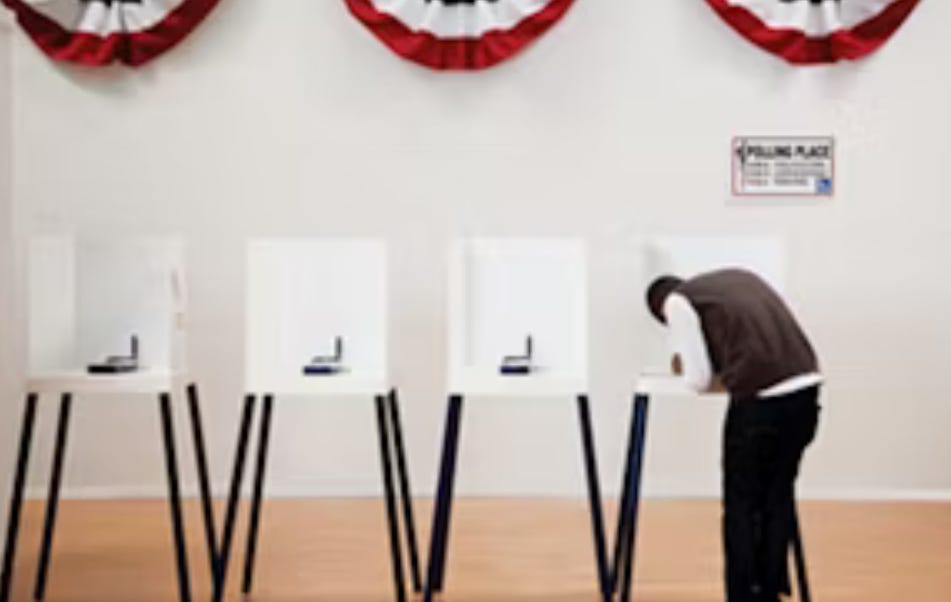House Passes SAVE Act to Stop “Virtually Nonexistent” Voter Fraud, It Will Cause Voter Suppression
Despite claims of widespread voter fraud, experts say it’s more likely for an American to be struck by lightning than to impersonate another voter — yet the SAVE Act could block millions from voting.

WASHINGTON, D.C. — The U.S. House of Representatives passed the Safeguard American Voter Eligibility Act (SAVE Act) on Wednesday, advancing a measure that would require Americans to present documentary proof of citizenship — such as a birth certificate or passport — when registering to vote.
While proponents claim the bill is necessary to prevent voter fraud, extensive research shows such fraud is virtually nonexistent, and myths about voter fraud tend to result in voter suppression.
The bill, introduced by Republicans, would impose new documentation requirements that critics say would disenfranchise millions of eligible voters who lack immediate access to these records. It would also eliminate widely used methods of registration — including online, mail-in, and third-party voter registration drives — effectively reshaping how Americans participate in elections.
Michael Waldman, president and CEO of the Brennan Center for Justice at NYU Law, called the bill “one of the worst pieces of voting legislation in American history.”
“The SAVE Act would put voting out of reach for millions of American citizens,” Waldman said. “It should not become law.”
Despite the concerns regarding voter disenfranchisement, four Democrats joined every Republican in supporting the bill. The four Democratic representatives who voted in favor were: Ed Case of Hawaii, Jared Golden of Maine, Henry Cuellar of Texas and Marie Gluesenkamp-Perez of Washington.
According to the Brennan Center, more than 21 million U.S. citizens lack ready access to the forms of identification the SAVE Act mandates. This figure represents approximately 9% of the voting-age population.
Among those most affected would be young voters, married women who have changed their last names, and communities of color. For instance, about 69 million married American women have legal names that differ from those on their birth certificates, which could complicate their voter registration process under the SAVE Act’s stringent documentation requirements.
Supporters of the bill argue it is necessary to prevent voter fraud — particularly impersonation at the polls. But a comprehensive body of research from the Brennan Center debunks this rationale. Its 2007 report, The Truth About Voter Fraud, reviewed elections that had been closely examined for fraud and found incident rates between just 0.0003% and 0.0025%. “An American is more likely to be struck by lightning than to commit voter impersonation,” the report noted.
Numerous academic studies and government investigations support this finding. A Columbia University study concluded that most alleged voter fraud stems from clerical errors or voter confusion. A 2014 Washington Post analysis found just 31 credible instances of impersonation fraud out of more than 1 billion ballots cast between 2000 and 2014. In five states targeted by fraud-prevention politicians, a follow-up study found zero successful prosecutions for impersonation fraud between 2012 and 2016.
The U.S. Department of Justice similarly investigated federal elections in 2002 and 2004 and found a fraud rate of just 0.00000013% — with no evidence of impersonation fraud. Even courts have weighed in: a federal appeals court reviewing Texas’s photo ID law noted just two impersonation fraud convictions out of 20 million votes cast over a decade.
“Other states have tried, and in all of them, a significant number of citizens have been wrongly barred from voting,” said Rep. Suzanne Bonamici, D-Ore. “It’s unacceptable. It’s voter suppression, and it’s wrong.”
Critics argue that the SAVE Act echoes a long history of suppressive voting measures implemented under the pretense of protecting electoral integrity. “Politicians who genuinely care about protecting our elections should focus not on phantom fraud concerns,” the Brennan Center wrote in its memo, “but on those abuses that actually threaten election security.”
The SAVE Act now heads to the Senate, where it is expected to face significant opposition. Democrats have signaled that the bill is unlikely to overcome the 60-vote threshold required to advance most legislation.
“This bill doesn’t fix a problem — it manufactures one,” Waldman said. “Lawmakers should be protecting the freedom to vote, not restricting it.”



